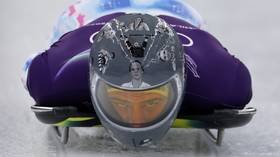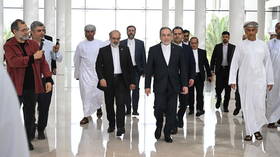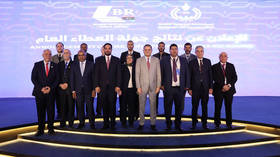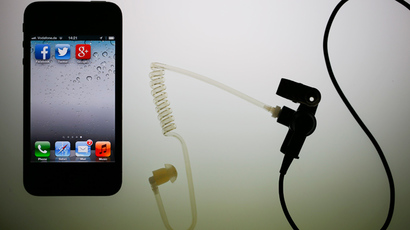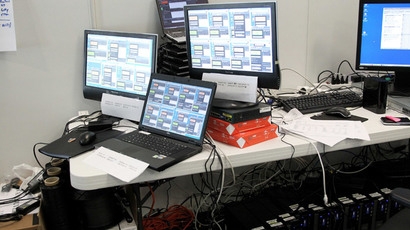Forget: ‘Are we there yet?’ The car apps that will revolutionize road travel
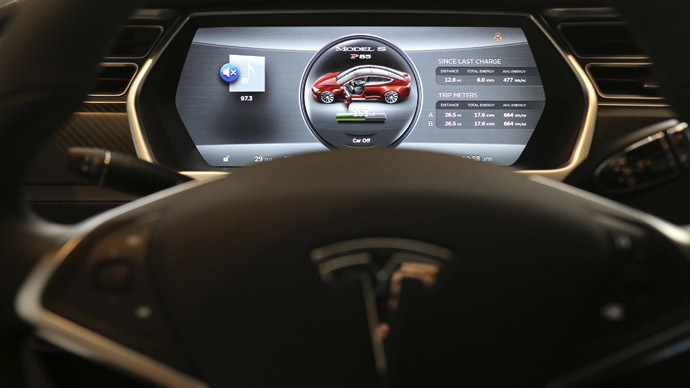
Driving a car, particularly with annoying children in the rear seats, could soon be revolutionized, becoming a fascinating way to experience the world. That’s if you install the right apps. And indeed, the most unbelievable apps are coming soon.
Exhibits at the LA Auto Show confirm the trend: interactivity of the driver and passengers with a car’s onboard computer and handheld apps is set to change not just their usability, but also our lifestyle and very concept of spatial motion.
No more vegging out, watching through the windshield - the journey will come right inside your car, say companies who develop apps and infotainment interfaces that will inform, assist and anticipate your needs on the go.
Those hungry for information will be getting instant access to information about any landmarks they dart past, predicts Mary Ann de Lares Norris, chief operating officer at Oblong Industries, a company creating innovative interfaces.
Instant access to the worldwide web for an inquiry implies gesture control technology similar to Xbox’s Kinect. Another example of such systems already used today are conference rooms where computer systems and displays are operated with special wands, de Lares Norris told the LA Times.
Traveling with children can often be hard, but if they’re kept busy with enlightening experience of the outside world, they’d rather say “Hey, Mom, did you know?” instead of "Are we there yet?" de Lares Norris said.
Microsoft has had a stab at creating an onboard computer capable of understanding the driver and constantly learning his personality and habits. It would eventually learn what the car owner likes: the cheapest or nearest gas stations, ordering food mid-drive, etc, thus sparing the driver’s time, Bryan Biniak, global vice president of Microsoft, said.
The interface would not only give children traveling in rear seats the information and entertainment they want, it will listen to them and if some kind of screaming starts, the system will change the music, decrease its volume or even tell jokes to divert children’s attention from the irritant, Biniak said.
“To get to the soul of a car and passenger, you need to know what is important in day-to-day circumstances,” he said.
The GPS module in the car would not just navigate you through the road jams, it will suggest products, sales and activities of the companies you’re passing by, or tip you off on what to do in the location you find yourself in in case you have some spare time to kill.
The apps will help parents to plan activities for children during the journey. No more will there be movies with missed final scenes or movies that end before the trip is over. The onboard computer or a tab will adjust the contents to keep passengers watching the chosen content exactly for the time of the journey: no more, and no less.
Naturally, the info and entertainment giants are running ahead of all other players on the market.
Apple is finalizing its Apple CarPlay system while Google is already introducing its Android Auto API infotainment software integrating apps of the platform for in-car use that will be pre-installed in the 2015 Hyundai Sonata.
The apps developed by third-party companies will integrate with the work of the Android Auto API in a way to perform their functions for a driver without the need to take his or her hands off the wheel, CNet reported.
That will enable voice navigation in Google Maps, voice browsing in the web, messaging while driving, with texts being read aloud, navigation through music radio stations and podcasts, listening to the latest news and much more.
KPMG's “Me, My Car, My Life… in the ultraconnected age” whitepaper has proclaimed the beginning of the era of ubiquitous connectivity, in which driving means that you, your car and your life have become one.
The car is becoming not just a personal transport system used for locomotion, rather it is a command bridge controlling all aspects of our extremely mobile lives. This also implies changes in the automotive industry.
"At this moment every aspect of the automotive business is changing," said the author of the report, national automotive industry leader for KPMG, Gary Silberg.
"Not since the first automotive revolution has there been such massive innovation and displacement of the status quo, where we will see new players surge forth, some old players reinvent themselves and others totally left behind,” he said.


